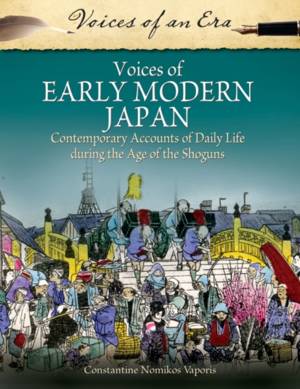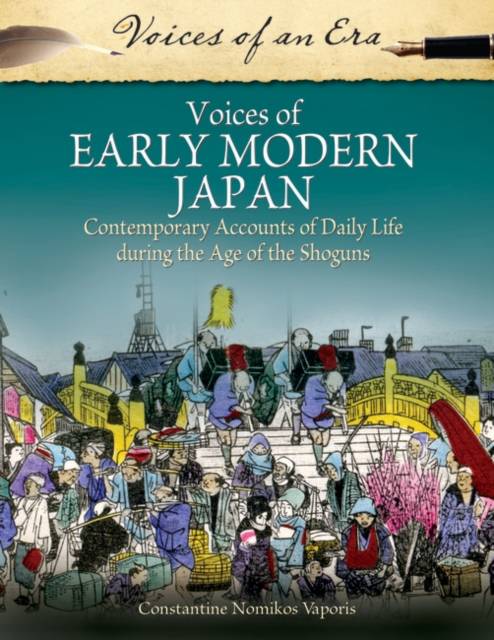
- Retrait gratuit dans votre magasin Club
- 7.000.000 titres dans notre catalogue
- Payer en toute sécurité
- Toujours un magasin près de chez vous
- Retrait gratuit dans votre magasin Club
- 7.000.0000 titres dans notre catalogue
- Payer en toute sécurité
- Toujours un magasin près de chez vous
Voices of Early Modern Japan
Contemporary Accounts of Daily Life During the Age of the Shoguns
Constantine Vaporis
195,45 €
+ 390 points
Description
Based on fresh translations of historical documents, this volume offers a revealing look at Japan during the time of the Tokugawa shoguns from 1600-1868, focusing on the day-to-day lives of both the rich and powerful and ordinary citizens.
Voices of Early Modern Japan: Contemporary Accounts of Daily Life during the Age of the Shoguns spans an extraordinary period of Japanese history, ranging from the unification of the warring states under Tokugawa Ieyasu in the early 17th century to the overthrow of the shogunate just prior to the mid-19th century opening of Japan by the West. Through close examinations of sources from a time known as "The Great Peace," this fascinating volume offers fresh insights into the Tokugawa era--its political institutions, rigid class hierarchy, artistic and material culture, religious life, and more. Sources come from all levels of Japanese society, everything from government documents and household records to personal correspondence and diaries, all carefully translated and examined in light of the latest scholarship.Spécifications
Parties prenantes
- Auteur(s) :
- Editeur:
Contenu
- Nombre de pages :
- 332
- Langue:
- Anglais
- Collection :
Caractéristiques
- EAN:
- 9780313392009
- Date de parution :
- 06-01-12
- Format:
- Livre relié
- Format numérique:
- Genaaid
- Dimensions :
- 216 mm x 279 mm
- Poids :
- 1111 g

Les avis
Nous publions uniquement les avis qui respectent les conditions requises. Consultez nos conditions pour les avis.






